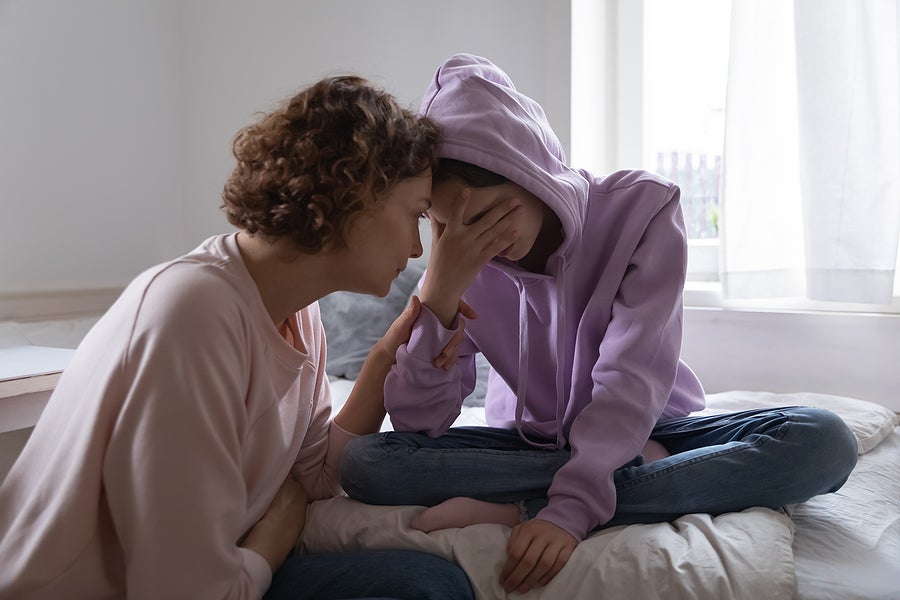By Erica Fener Sitkoff, Ph.D. Voices for Georgia’s Children
The reality is, no one has escaped the effects of the profound mental health challenges we face – in the news, in our shared communities, in our homes. In fact, the world’s experience of the COVID-19 pandemic gave us a collective definition for unwellness like no recent time in our history.
This pandemic has undeniably contributed to growing mental health disorders, but it cannot take all the credit for the long-brewing crisis. In Georgia:
- 108,494 students reported having seriously considered harming themselves in 2019. Today, suicide remains the second leading cause of death for Georgia’s kids ages 10-17.
- Nearly a third of Georgia’s counties (45) still do not have a licensed psychologist or a licensed social worker. Families across the state, with and without health insurance coverage, struggle to access mental health help and substance use reduction services.
- Almost 70% of youth in Department of Juvenile Justice long-term facilities have a mental health diagnosis severe enough to require ongoing treatment.
For long, Georgia has been trying to chip away at this issue and this session we have been given larger tools to work with. Because of the intense focus on the need to address the mental health crisis generated by Voices for Georgia’s Children and partners, work by various task forces, study committees and the Governor’s Behavioral Health Reform and Innovation Commission (BHRIC), Georgia’s recent collection of bills well positions Georgia to better prepare a behavioral health workforce, increase access in schools, and use more youth and parent peer-to-peer early intervention. The most significant new development during the Georgia legislative session was the adoption of the comprehensive “Mental Health Parity Act.” The bipartisan new law allows Georgia to:
-
- Create stronger accountability for insurers to cover behavioral health services at levels comparable to physical health services.
- Secure policy and protocols to develop and expand Georgia’s behavioral health workforce, which includes establishing a Georgia-based cancellable student loan program for clinicians that support underserved communities.
- Encourage and enable more effective interagency collaboration and service provision for all residents with behavioral health needs – especially children and families who have particularly complicated needs.
Additionally, through other pieces of legislation we can now:
- Create a licensure process for applied behavioral analysis (ABA) therapists who serve children with autism (signed into law on May 2).
- Develop policy for behavioral health professionals to accompany public safety officers on certain calls. This bill is currently awaiting the Governor’s signature.
Lawmakers put money in the budget to support the success of these policies by allocating more than $12 million in the Amended Fiscal Year 2022 budget, and well over $96 million in the FY23 budget, all directed to mental health-related services, trainings, and supports for Georgians across several agencies. Of note, $5.66 million of that funding will go towards significantly expanding Georgia’s state-funded school-based mental health program (Georgia Apex Program), which currently serves children and youth in more than 700 K-12 schools.
The Georgia Legislature also approved an extension of Medicaid postpartum coverage from 6 to 12 months, which would help more new mothers access treatment for postpartum depression and substance use disorders during a critical period of life for both them and their infants. This bill is currently awaiting the Governor’s signature.
Where does Voices go next? We are working closely with communities through youth-led and family-informed research to ensure that their priorities play an even bigger role in our state’s behavioral health policy developments to come.
It is crucial that we look toward the community and undergird the power of peer-to-peer support and their perspective as we collectively create a stronger more accessible system of care.
Dr. Erica Fener Sitkoff is a clinical child psychologist who has spent more than twenty years translating the insights of her practice into policy solutions that ensure all children thrive. Since 2017, she has served as the Executive Director of Voices for Georgia’s Children, the state’s largest child advocacy organization.


